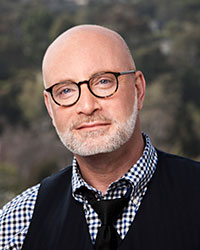 Dr. Robert Weiss LCSW, CSAT
Dr. Robert Weiss LCSW, CSAT
If addicts could heal from addiction without help, they would. But they can’t. That’s the definition of addiction, right? You’re compulsive with a substance or a behavior and you can’t stop, no matter how hard you try, no matter how bad the consequences. You’re using when you don’t want to, when you’ve promised yourself and others you wouldn’t, when it’s ruining your life. And then you’re using some more.
That’s addiction. And the only way to stop it is to accept outside assistance – treatment, therapy, 12-step meetings, support groups, etc.
Interestingly, addicts don’t engage in their addiction to have a fun time and feel good; they do it to escape from life and feel less. They turn to addictive substances and behaviors to self-medicate (to numb) their emotional and psychological discomfort – loneliness, boredom, shame, fear, anxiety, depression, and the like.
Non-addicts turn to other people when they’re feeling emotional discomfort. Addicts would rather eat dirt. For addicts, unresolved trauma has poisoned the well of attachment and connection. Others have hurt them, let them down, and left them feeling unloved, unworthy, abandoned, or intruded upon. Because of this, they fear and avoid emotional intimacy. For them, it’s easier and emotionally safer to self-soothe by numbing themselves through use of an addictive substance or behavior.
When addictions are thought of in this way – as an intimacy deficit or disorder – it is clear that the best hope for recovery and healing is not white-knuckling it through withdrawal and then drawing on deep reserves of willpower, it’s developing a secure sense of intimacy, trust, and connection with other people. This is the emotional healing that addicts desperately need.
Addiction treatment facilities, therapists, and 12-step programs have operated with “addictions are intimacy disorders and healthy, prodependent connections are the primary antidote” as an underlying principle for decades. In fact, much of what occurs in well-designed treatment programs (such as Seeking Integrity), beyond psychoeducation, breaking through denial, and implementing behaviorally focused regimens for change, centers on the development of reliably healthy social bonds, especially with others who face the same life challenges.
That said, developing healthy intimate connections can be difficult for addicts. After all, they nearly always have unresolved childhood trauma and other forms of early-life dysfunction that make intimate attachment uncomfortable and difficult. For recovering addicts, learning to trust, reducing shame, and feeling comfortable with both emotional and social vulnerability takes time and ongoing effort. The good news is that both research and countless thousands of healthy, happy, long-sober addicts have shown us that this type of healing is possible.
* * * * * * * * * *
If you or a loved one are struggling with sex or porn addiction, Seeking Integrity can help. In addition to residential rehab, we offer low-cost online workgroups for male sex addicts and male porn addicts new to recovery. Click HERE for information on our Sex Addiction Workgroup. Click HERE for information on our Porn Addiction workgroup. We also offer online workgroups to help betrayed partners. Click HERE for information.
